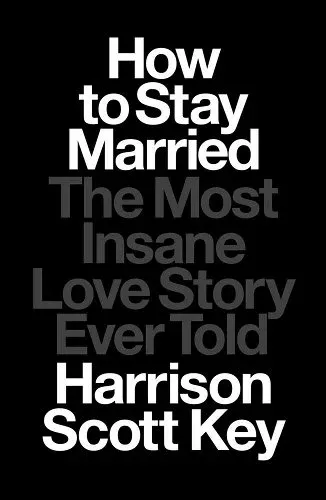The Worst (and Best) Advice I Got When My Wife Had an Affair. Spoiler: I'm Still Married
A while back, my wife had an affair with the next-door neighbor, precipitating the strangest year of my life. We have three young daughters and live in gorgeous, historic Savannah, Georgia. I liked this little life of ours. My wife, it seems, did not. And so she blew up that life and everyone in it.
She left the children with me, she explained, to figure out some things. I had some things to figure out, too. I had been a disciplined, successful writer with a comfortable, familiar routine. I was now the kind of man who smoked menthols in the driveway in broad daylight in my underwear while listening to Adele. I had been an ardent advocate of nonviolence. I now kept a machete in my truck, as though I belonged to some Paraguayan militia.
When your life gets blasted in the fires of betrayal, the mind ricochets to strange new extremes. Should I call an attorney, to start proceedings? My pastor, to pray with me? My mom, to help with the kids? Should I get counseling? Scream at clouds? I'd always been the wise, strong friend others called for advice. I was now the one who needed it, desperately. In the weeks and months after learning of the affair, I received a lot of advice from many people.
Here's what they said, what I did, and what happened after.
What the romantics said…
"What you gotta do is win her back," Michael, a hopeless romantic, advised. And part of me wanted to. My wife and I had been married for 17 years. You don't just go throwing away something like that. Plus, I love a good challenge. A few days after she left, on her birthday, I found a suitable birthday card. I filled the card's every white space with a deliciously poetic love letter and drove by her office, planning to place it on her windshield like an adoring stalker.
What the realists said…
But something gave me pause. I didn't put the card on her windshield. Why? Because I got better advice from Rachel, a straight-shooter, who said: "When your wife leaves you, I don't think you have to get her a birthday card." Rachel was right. Love letters have their place in a marriage, but we were way past that. The card suddenly seemed pitiful, a desperate plea for something that would not be won back via pining. I burned the card.
What the angry people said…
"Burn her panties in the yard," said Brad. Brad had his own pain, I guessed. But I liked the idea of burning things, the cleansing drama of it. The problem was, my wife was gone, and her panties were now unavailable for ritual immolation, though she'd left many treasured items in the house: little teacup sets, favorite mugs. I considered mass destruction involving sledgehammers.
What the cougar said…
"What you need is a good lay," said a woman at the bar up the street, when I shared my tale of woe. Lauren took the girls every few days, and I spent those nights at the aptly named Lone Wolf Lounge, too sad to sulk around my empty house. The cougar suggested that sex "would do wonders" for my "energy." She seemed like she wanted to be the one doing the wonders, and I wanted to let her. I was so sad. I longed for affection. And she wasn't the only one. Savannah is a small town, and when word got around about my busted marriage, I began receiving DMs from hot single moms who'd also been betrayed, and they spoke of their anger and their healing yoga practice, which had made their bodies very stretchy. I wanted to see these bodies.
What my drinking buddies said…
Around this same time, I called Jason and Soren—two of my closest friends—to my backyard. We prayed, we wept, we drank. "What do I do?" I said. "Don't have sex with your secretary," Soren said. The good news is, I don’t have a secretary. Jason then shared the story of a pal who'd been cheated on, a man who sought balm in Vegas on a weeklong bender with exotic dancers. "He's not doing well," Jason said. "He came back worse." They were right. Sex could come later, maybe even with my wife. She was still my wife.
What my friends who go to therapy a lot said…
"Move on. This is not about you," these friends said—the ones who loved talking about attachment issues and generational trauma. "What you have to do is get on living. Your wife has her own issues." They were only trying to make me feel better, to keep me from blaming myself, but somehow, this advice made me feel worse. Imagine telling this to a stabbing victim. It's not about me? Thanks! I'll be over here, bleeding out, feeling comfort that I did not cause this stabbing! I wasn't convinced this wasn't at least sort of about me. About the me I had been in the marriage.
What my therapist friend said…
Jimbo came to my driveway for a beer. He's a family therapist and had seen many broken marriages. He said, "In these situations, if the marriage is going to recover, then the betrayed spouse usually has to own their part in it." He wasn't trying to pin all the blame on me, I don't think. It was not quite that. But I had to admit, I had not been a perfect husband. Sure, next to an adulterer, I did look pretty amazing. Yet others had occasionally suggested I was not amazing. I held on to this thought.
What two wise women said…
"Go into the wilderness," said Debbie. Debbie had been through her own marital hell long before. Louise, another family friend, said the same thing. Both women gave off strong oracle vibes. They are both highly religious people, though not in any kind of institutional sense. They were spiritual doulas, free of judgement, there to listen and love. Both suggested I use the separation as a meditative season for self-reflection, just as Jimbo recommended. "The desert is a good place to be right now," Debbie said. If I was going to fight anybody, they seemed to be saying, why not fight the monster I saw in the mirror? Or at least give him a hug and see what he has to say.
What the monster in the mirror said…
I spent many dark nights staring into the abyss of the mirror before me. I stared at the monster and the monster stared back. I made a list of what he said. The list focused on all the ways I had hurt my wife over the years: my distraction, workaholism, stubbornness, the ways my own vileness had manifested. For example, I once boasted so proudly to my wife about the moral superiority of my flip phone that she threatened to assault me with a Yankee Candle.
I brag too much. I mock what others find sacred. I have the emotional intelligence of a potted succulent. I interrupt others continually, because I have more interesting points to make, such as how I own a flip phone. The list was long. It did wonders for my energy. Where before I felt shitty because my wife left, now I felt shitty for being at least partially responsible for her leaving. I could not deny the fact that, infidelity aside, I was easily the most unlikable person in my marriage.
What my wife's closest friend said…
Tornadoes of paradox raged through me. Win her back with poetic entreaties—or present strength? Burn her panties in righteous anger—or attempt to forgive, which felt like utter weakness? Go on a self-care sex-bender with area cougars, which seemed like it might offer some needed distraction—or stumble into the wilderness and fight my own demons?
The answers to these riddles presented its own riddle when Angie, my wife's last remaining friend, said the following: "You're going to fight for her, right?"
When you have an extramarital affair, I've learned, you tend to lose friends, at least the wise ones. The good ones. You cut off those who might urge you not to seek your bliss, for example. Angie had been blindsided by my wife's confession as much as anyone, and her exhortation to fight for my marriage seemed just weird and impossible enough to be worth trying. The great wisdom literature, counsel that seems to have stood the test of the ages, is almost always weird and impossible. This was no exhortation to write letters or send flowers. Angie's question felt like it pointed toward the supernatural. You're going to fight for her, right?
Angie did not say how, exactly, you fight for your wife when she's already gone and quite possibly longing to marry her lover. The Tao says, "The greatest warrior fights without anger." But then country music singer Toby Keith says, "We'll put a boot in your ass, it's the American Way."
Country music was not helping me stay married.
If I fought anything in those days, it was the house. I had three kids and two jobs and one house ravaged by heartbreak and laundry. I worked from 5:00 a.m. to 11:00 p.m. every day, at home, at the office, in the kitchen, in the bathrooms before school, where I attempted to help my daughters do their hair. I'm bald. I know nothing of hair. I haven't had hair since Clinton was in the White House.
I didn't know how to fight for my wife, so I fought the hair. I fought the toilet bowls. I put a boot in the laundry's ass. I bought small dry-erase boards for the fridge and wrote out meal plans and chore assignments and set aside time on weekends for laundering our children's underwear, rather than burning my wife's. Fighting for my wife and my marriage looked more like building up, rather than tearing down, what still remained of our life.
I woke early every morning to write, to add to the list of my own vileness, to reflect on how I might reduce that vileness, to describe what this marriage had been, what it had become, who we were now, who we might become. What began as a journal became a book, or at least the beginning of a book, and the middle. I still didn't know how it would end.
One day I called my wife. We hadn’t spoken in months, other than via text, to coordinate matters regarding the children. I said, "You know, I've been a terrible husband." And she said, "I've been a terrible wife." It was the first thing we'd agreed on in a long time. And then I told her she could have the divorce. I was done fighting with her. I had other fighting to do. I had a new man to become. A new life to build.
But she said nothing. She didn't say, "Okay," or "Thanks," or "That's a relief." All I heard was quivering silence. A chasm in creation opened. Birds held fast in the sky. And then she said she wanted to come home. "Can you come get me?" she said.
I was just as shocked by those words as her confession, months before.
I have little doubt that if I'd taken the worst advice, the easy advice, the advice that felt so natural in my heartbreak—pine, punish, wallow, find a good lay—my wife and I would never have come to this point, there on the phone. It was the harder, weirder, more confusing advice that brought us here. We'd both gone into the wilderness. We'd looked in the mirror. We'd fought the monsters we saw there.
The world is full of bad advice from nice people who don’t know they’re not helping. Avoid those who urge you to vengeance or say you deserve better. The only thing you deserve is better advice from people who have a rudimentary grasp of the eventual nightmare of marriage for both people in it. For here, now, was the moment to fight for my wife. The road from here would be long, I knew. The real journey—of therapy, confession, forgiveness, reconciliation—lay ahead.
So I got in my truck, and went to see how the story might end.

Harrison Scott Key is the author of How to Stay Married: The Most Insane Love Story Ever Told. Harrison’s TEDx talk about the challenges and rewards of creative ambition (“The Funny Thing About the American Dream”) is featured on TED.com. He has spoken and performed on radio (Snap Judgement, WNYC Studios) and for hundreds of festivals, bookstores, conferences, variety shows, and universities.
Please note that we may receive affiliate commissions from the sales of linked products.



